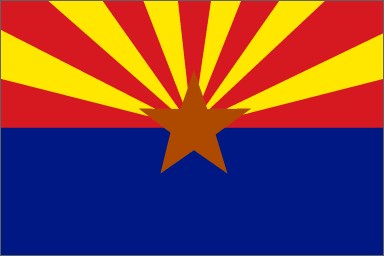Gabby Giffords and Mark Kelly have formed The Arizona Coalition for Common Sense. It looks like they mostly intend to push ending private transfers and sales. Last round Bloomberg barely eked out an electoral victory in Nevada, lost outright in Maine, and then lost in Nevada because the law was poorly drafted and demanded the FBI do something the FBI won’t do, which is run background checks on behalf of a point-of-contact state.
We’ve seen this pattern before. Bloomberg usually does push legislatively for a bill first, then comes in with the ballot only when the bill fails. Oregon’s Democratic legislature, for instance, preemptively surrendered on the issue, so no need for a ballot run there. Arizona’s legislature is not likely to play ball, however. Can we beat Bloomberg in Arizona, as we beat him in Maine?
Note they keep pushing the statistic that background checks are a 92% issue, when they have never come anywhere close to that at the ballot box.


AZ resident here. We have such a health gun culture; I doubt this will gain any steam here. Of course, I never underestimate the enemy.
“I doubt this will gain any steam here.”
We don’t have initiative and referendum in PA, and I have done a 360 (maybe even a 540 or 720!) on the subject over the decades. But I recall gun rights personalities and organizations being generally hostile to the concept, based on, that resisting anti-gun initiatives over time can bankrupt and exhaust an organization; especially if money is no object for the opposition.
I would be interested whether anyone knows if there is higher correlation between spending and electoral success, for ballot initiatives than for candidates.
I’d be interested in seeing such a correlation. I would guess money plays a bigger role in ballot initiatives, because spending is mostly about appealing to the uniformed (often with misinformation). Initiatives don’t come with a (D) or an (R) next to them, which is how a lot of people vote regardless of how much money is spent. Perhaps 90% of the people want expended background checks, but a small number of people want to see people jailed for letting a friend handle a gun, so spending on correcting misinformation could play a bigger role than typical elections.
The more the Public cares about an issue, the less difference money makes. But money always makes *some* difference.
Now that Commiefornia has become a single-party State, the referendum process has accelerated the losses of minority rights. So the referendum power does contain that peril.
But California took decades to reach this condition, and over that time the referendum process powerfully obstructed and resisted the power grabs of the burgeoning Democratic Party. And the Democrats during that time were eager to shut down or interfere with the referendum power because of that obstruction.
Based on my experience, the effect of money would be hard to evaluate, because sometimes how much was spent and by whom cannot be computed.
I was involved and very active in an anti-“Tax Reform” campaign years ago, because I thought it was a backdoor route to raising taxes. A constitutional change to permit it was what the public would actually vote on, but all of the debate was about the scheme itself, which was backed by the Democratic governor.
I formed a regional “Vote No” group of my own, but was quickly recruited into a statewide “citizens group.” The “Vote Yes” side was the state government itself, the Department of Community Affairs, acting at the direction of the Democratic governor. (The Department no longer exists.)
I quickly learned our “citizens group” was an astroturf outfit that met in the offices of a powerful Republican state senator in the capitol. That was OK with me, but the point of the story is funding. I would receive large, anonymous packages of professionally produced campaign materials that I knew originated with a powerful state industry group, but were marked as originating with our “grassroots” group. I took local direction from the county Republican committee.
On the other side, almost everyone I debated around the state was an employee of the Department of Community Affairs. I presume their expenses were being paid by the Department, as they covered debates in firehouses and church basements across the state in the evenings. Nobody covered my personal expenses, like for travel. I debated the Secretary of Community Affairs on Philadelphia network TV.
To this day, I’m sure no one could tell you how much was spent by either side.
To complete the story, we won. Voters rejected the constitutional change 3 – 1 statewide, 6 – 1 in my county, and 9 – 1 in my local municipalities.
But there is more to complete the story. Within several years it was my Republican patrons, who had backed the “Vote No” effort, who would succeed in implementing the very constitutional changes they had fought at the time. It turned out they had no problems at all with the Tax Reform concepts; it had just been an opportunity to embarrass a Democratic governor, who had made the mistake of placing his name on a detailed plan. That was all I had been fighting for, mostly on my own dime. I have never again made the mistake of taking the motives of a campaign at their stated face value.
As someone once told me, “All education costs.”